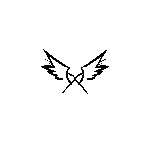Have you ever read a fantasy novel, played an online RPG, or joined a fantasy football league and stumbled upon a name that instantly stuck with you — something like The Storm born Legion or The Crimson Pact — and thought, “How did they come up with that?”
There’s something magnetic about a well-crafted fantasy team name. It doesn’t just sound cool — it feels alive. It evokes a world, a story, and a shared identity. Whether it’s a guild in a video game, a warrior clan in a novel, or a fantasy sports team competing for glory, the right name can make all the difference.
But crafting a fantasy team name that feels powerful, believable, and memorable isn’t as easy as it looks. Many writers and creators struggle with it — they want something original, but everything sounds either cliché, forced, or awkward.
That’s where this article comes in.
In this in-depth guide, you’ll learn:
- How fantasy team names are built — the psychology, language, and storytelling behind them
- The step-by-step process writers use to create names that sound epic and authentic
- Real examples from literature, gaming, and pop culture
- Mistakes to avoid and techniques that separate amateur names from legendary ones
- By the end, you’ll know exactly how to craft fantasy team names that inspire emotion, fit your world, and feel unforgettable.
What Is a Fantasy Team Name, Really?

Before we dive into the creative process, let’s get clear on what we’re talking about.
A fantasy team name is a symbolic label that represents a group — real or fictional — within a fantasy or imaginative setting. It could belong to:
- A warrior guild or clan (The Ironfang Brotherhood)
- A magical order (The Circle of Embers)
- A royal army (The Silver Vanguard)
- A band of heroes (Guardians of the Dusk Realm)
- Or even a fantasy sports team (The Shadow Blades FC)
What makes a fantasy team name special isn’t just its sound — it’s the story and emotion behind it. The name hints at history, values, and purpose. It’s a piece of world-building in just a few words.
Why Fantasy Team Names Matter So Much
You might think names are secondary to the story or game itself. But here’s the truth: names are identity anchors. They define how others perceive your team and how members feel about it.
Here’s why they matter:
1. They Build World Immersion
A good name helps readers or players believe in your world.
Compare The Storm guard Order to Bob’s Brave Guys. One transports you into an epic realm — the other breaks immersion instantly.
2. They Spark Emotion
Names evoke emotion. The Blood moon Covenant sounds dark and ominous. The Dawn seekers feels hopeful and noble. Emotion is what makes names stick.
3. They Strengthen Group Identity
In stories, games, or sports, a name unites members under a shared banner. It creates belonging, loyalty, and pride.
4. They Leave a Lasting Impression
Memorable names live in our heads. Think of The Night’s Watch, The Fellowship of the Ring, or Team Valor. They resonate long after the story ends.
The Psychology Behind Great Fantasy Team Names
Every powerful name connects with something deeper — emotion, rhythm, and meaning. Let’s look at the psychological ingredients behind a name that feels right.
1. Emotional Resonance
The strongest names trigger emotion instantly — awe, fear, curiosity, admiration. Words like Shadow, Dragon, Light, or Eclipse carry emotional weight because of their mythic associations.
2. Symbolism
Fantasy thrives on symbolism. Fire symbolizes power, water symbolizes wisdom, and stone symbolizes resilience. Combining symbolic words makes names rich with meaning — The Ember borne or Stone ward Sentinels.
3. Euphony (How It Sounds)
Sound matters. A good name flows naturally off the tongue. Writers often use alliteration (Silver Sentinels), rhythm (The Blade born), or contrasting sounds (Frost fire Legion) to make names memorable.
4. Mystery and Suggestion
A great fantasy name doesn’t reveal everything. The Veiled Order or Children of the Rift suggest a hidden story, drawing readers deeper into the world.
The Building Blocks of Fantasy Team Names
So how do writers actually build these names? Most follow a structure — consciously or intuitively — combining several creative elements.
1. Core Concept or Theme
What does the team stand for?
Are they guardians, rebels, scholars, assassins, or explorers?
The core theme determines your tone — noble, dark, mystical, humorous, etc.
Examples:
- Guardians → The Wardens of Dawn
- Rebels → The Iron Rebellion
- Assassins → The Shadow blades
2. World or Setting Influence
Names should reflect the culture and setting of your fantasy world.
A team from a desert realm might be The Sand born Tribes, while one from an icy kingdom might be The Frost guard.
3. Language Style and Tone
The words you choose signal formality, origin, and time period.
For example:
- The Crimson Covenant (ancient, formal tone)
- Bone breakers (raw, barbaric tone)
- Star seekers (mystical, hopeful tone)
4. Symbolic or Mythic Elements
Draw from universal symbols like light, darkness, nature, fire, death, or celestial bodies.
Examples:
- Light → The Radiant Legion
- Darkness → The Shadow Pact
- Nature → The Thorn bound Circle
- Fire → Ember guard Alliance
- Sky → The Storm wardens
5. Structure
Fantasy team names often follow one of these patterns:
| Structure | Example | Tone |
|---|---|---|
| The [Adjective] [Noun] | The Crimson Blades | Epic |
| The [Noun] of [Noun] | The Order of Embers | Mystical |
| [Single Compound Word] | Shadow born | Mysterious |
| [Plural Noun] | Nightwalkers | Group identity |
| [Proper Noun + Descriptor] | Avaran Sentinels | Cultural |
The Step-by-Step Process Writers Use to Create Fantasy Team Names
Let’s break down a practical process that writers and creators use to come up with fantasy team names that feel real and fit perfectly.
Step 1: Define the Team’s Identity
Ask yourself:
- What is their purpose or mission?
- What traits define them — courage, secrecy, wisdom, ferocity?
- Are they feared, admired, or misunderstood?
Write down adjectives that describe the team’s personality.
Example:
Stealthy, loyal, ancient, mystical → could lead to The Silent Covenant or The Shadowbound.
Step 2: Identify the Cultural and World Context
Names should feel natural to their world.
A magical order from an Elven realm might use lyrical words. A barbarian tribe might prefer harsh consonants.
Tip: Think of how real-world languages influence sound — Latin for elegance, Nordic for strength, Gaelic for mysticism.
Step 3: Choose Symbolic Keywords
Pick words that match the team’s energy — Flame, Thorn, Shadow, Star, Wolf, Iron, Dawn.
Combine them creatively:
- Shadow + Blade = Shadow blade
- Iron + Legion = Iron Legion
- Dawn + Wardens = Wardens of Dawn
Step 4: Experiment with Structures
Play around with structure:
- The [Adjective] [Noun] → The Gilded Blades
- [Noun] of [Place] → Sentinels of Eldoria
- [Symbolic Word + Verb/Noun Combo] → Storm forged
Step 5: Test Sound and Flow
Say it aloud. Does it sound powerful or awkward?
Good names often have rhythm — alternating hard and soft sounds makes them more musical.
Compare:
- Crimson Covenant (flows beautifully)
- Dark Blood Pact (sounds clunky)
Step 6: Check Originality
Search your chosen name online. If it’s already tied to another well-known fantasy group, tweak it slightly — maybe change the descriptor or rearrange the order.
Step 7: Connect It to a Story
Finally, give your team name meaning. Why are they called that? Did they earn the title, inherit it, or forge it through legend?
Even a short backstory makes the name believable and emotionally resonant.
Real-Life Examples of Powerful Fantasy Team Names
Let’s analyze a few famous names and see what makes them memorable.
1. The Fellowship of the Ring (The Lord of the Rings)
- Fellowship implies unity and purpose.
- It’s humble yet meaningful — not warriors, but companions.
- Reflects Tolkien’s deep understanding of camaraderie.
2. The Night’s Watch (Game of Thrones)
- “Night” symbolizes darkness and vigilance.
- “Watch” conveys duty.
- Together, they form a timeless symbol of sacrifice and resilience.
3. The Avengers (Marvel)
- A single word that conveys motivation — vengeance.
- Simple, emotional, and bold.
- Universally understandable and instantly powerful.
4. Team Instinct / Valor / Mystic (Pokémon Go)
- Each embodies a value system — instinct (nature), valor (bravery), mystic (wisdom).
- The abstract quality makes each name aspirational.
5. The Sinister Six (Spider-Man Universe)
- Alliteration adds memorability.
- The adjective “sinister” defines tone immediately.
- It feels both catchy and menacing.
- These examples show that powerful names blend meaning, rhythm, and emotion seamlessly.
Common Mistakes Writers Make When Naming Fantasy Teams
Even skilled writers can stumble when crafting names. Here are mistakes to avoid:
1. Overcomplicating the Name
If it’s hard to pronounce or remember, readers disconnect. Avoid overlong or strange combinations like Zyq’tharr’s Blooded Covenant of Eternal Flame.
2. Using Too Many Generic Words
“Shadow,” “Blood,” “Fire,” and “Dragon” are great — but if everyone uses them, they lose punch. Combine them creatively or pair them with unique words.
3. Ignoring the World’s Tone
A silly or modern-sounding name breaks immersion in a serious fantasy world. The Lightning Ninjas might work in an anime, but not in a medieval epic.
4. Forgetting Emotional Depth
Cool-sounding names without meaning feel empty. Always tie the name to history, values, or emotion.
5. Copying Existing Names
Even unintentional similarities can make your world feel derivative. Strive for originality, even if it means subtle adjustments.
Tips for Creating Truly Unique and Powerful Fantasy Team Names
Here are techniques professionals use to make names feel alive:
1. Mix Real Languages
Blend Latin, Old English, Gaelic, or Norse roots for authenticity.
Example: Solari (Latin for “sun”) + Guard = Solarguard.
2. Use Metaphors
Names that hint at metaphorical meaning feel richer.
Example: The Broken Crown suggests rebellion and lost royalty.
3. Draw from Nature and Myth
Nature provides endless inspiration — storms, seasons, animals, and elements all evoke emotion.
Example: The Frostfangs, Eagle’s Talon, Stormborn.
4. Add a Hint of Mystery
Names that suggest untold stories invite curiosity.
Example: The Whispering Pact or Order of the Rift.
5. Balance Power and Simplicity
Short names often feel stronger. One to three words is ideal.
Example: Ironclad, Stormguard, The Vow.


Leave a Reply